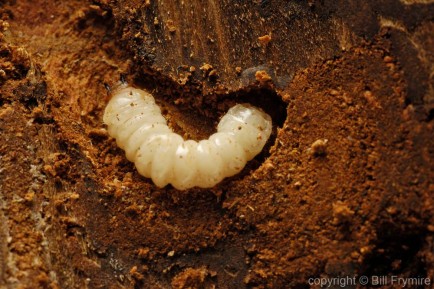Pine Beetle Impact 2016

Would you like to use this image? Click here to use it.
The Mountain Pine Beetle has now been a large factor in BC forests. BC has largely moved through its beetle infestation cycle, and now the forests will have some time to recover from the infestations. With increased temperatures in winter, Alberta and Saskatchewan are now worrying about the increase of beetle population and how it may impact their forests. Additionally, the pine beetle has not only jumped species, moving from BC’s large population of Lodgepole Pine to Alberta’s smaller stands of Jack Pine and Whitebark Pine (a species that is already at risk due to a fungal infestation).
Pine Beetle in North America is not new – this species is a natural forest predator, and in Montana and Idaho from 1911-1935, the beetle scoured the forests. One observer from the time said – “nearly all of the scorched trees were immediately attacked by bark beetles.” The connection between increased boreal temperature and the beetle is well cited – the beetle population increases as temperate weather allows it to generate not just one but sometimes two generations per year – this can lead to a massive increase in population that if not killed off during the following winter (with low temperatures) will create a multi-year infestation.
Beetle life cycle is usually about one year, but rapid reproduction makes the beetle difficult to control. The beetle also prefers mature timber, and it is the increase in fire control within BC that has led to a large amount of older growth pine that is believed to have supported the initial population surge in the pine beetle. Predators also include other insects and birds, especially woodpeckers.
British Columbia continues to have a largely stable forestry industry using beetle kill trees for lumber products production. The decline in the Canadian dollar means that increasing US markets will be taking up the slack of China’s declining construction boom. However, experts in forestry say that Canada simply does not have the supply necessary
to meet the demands of growing US markets. The pine beetle is part of forest ecology now – changes in the way BC harvests and uses lumber have been made because of the epidemic.
All these factors could lead to a massive price increase for lumber – get ready to pay a heftier price for your home reno projects this season.
Do you think that fire management along with global warming are having an impact on our forests? Have your say on the Facebook page.















